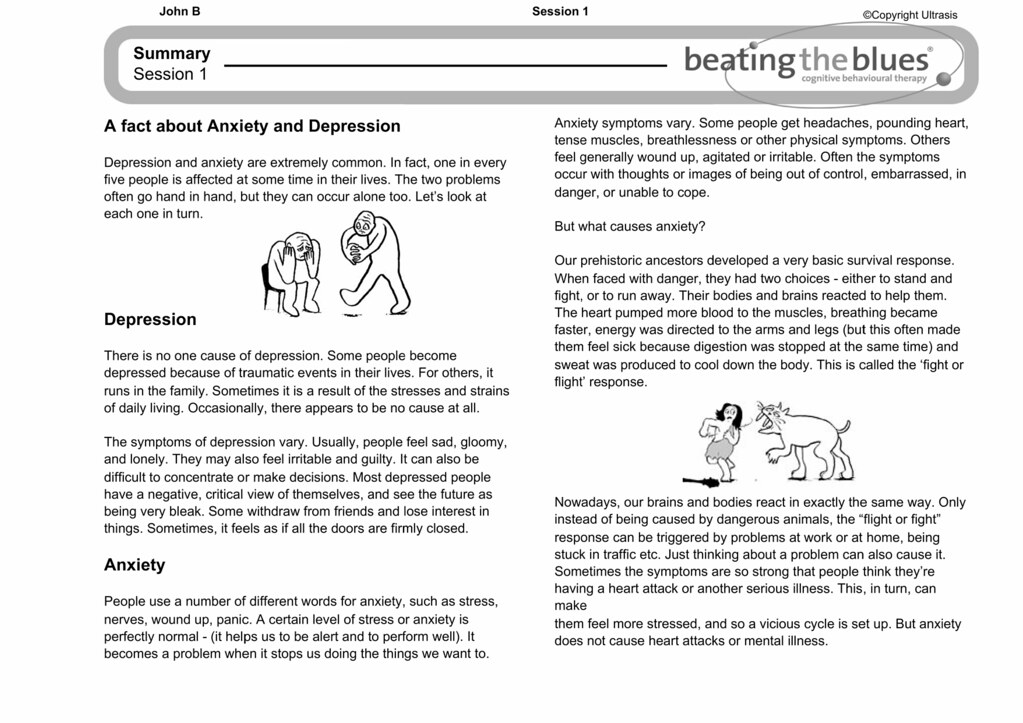Have you ever felt like your mind is racing a million miles an hour, making it hard to focus on anything else? Do you constantly worry about the future or dwell on the past? If so, you’re not alone. Many people struggle with negative thoughts and stress in their daily lives. But what if there was a way to calm your mind and find peace in the present moment?
In this ultimate guide to online mindfulness therapy, we’ll explore how this powerful technique can help improve your mental health and well-being. Whether you’re dealing with anxiety or depression or just looking to reduce stress, read on to discover how mindfulness can revolutionize your life.
Online Mindfulness Therapy: An Introduction to Building a Better You
Online mindfulness therapy is a powerful tool for improving mental health and overall well-being. By learning to focus your attention on the present moment, you can reduce stress, anxiety, and depression. Mindfulness therapy is also effective for managing chronic pain, improving sleep quality, and enhancing relationships.
One of the most significant advantages of online mindfulness therapy is that it allows you to access treatment anywhere in the world. You can participate in sessions from the comfort of your home or on the go. This makes it an ideal option for people with busy schedules or those who live in remote areas without access to traditional therapy services.
Another benefit of online mindfulness therapy is that it is often more affordable than in-person therapy. Many online therapists offer lower rates than their offline counterparts, making accessing high-quality mental health care easier.
If you want to improve your mental health and well-being through online mindfulness therapy, there’s never been a better time to get started. With a wide range of therapists and treatment options, you can find a program that meets your needs and fits your lifestyle.

The Benefits of Mindfulness Therapy: Exploring the Ways It Can Improve Your Life
Mindfulness therapy has been shown to have numerous benefits for individuals struggling with a variety of mental health issues. Research has found that practising mindfulness can lead to reduced symptoms of anxiety and depression, improved emotional regulation, and increased overall well-being.
One of the key benefits of online mindfulness therapy is its accessibility. With the ability to participate in sessions from the comfort of your own home, individuals who may have difficulty accessing traditional therapy can still receive the support they need. Additionally, online mindfulness therapy allows for greater flexibility in scheduling, making it easier to fit into busy lifestyles.
During sessions, clients will work with a trained therapist to learn mindfulness techniques such as deep breathing and body scans. These techniques can be used during sessions and everyday life to help manage stress and promote relaxation. With regular practice, individuals can see improvements in their mental health and overall quality of life.
How Online Mindfulness Therapy Works and What to Expect During Sessions
Online mindfulness therapy is a form of psychological treatment through video or audio calls, chat platforms, or email. The therapist provides guidance and support to help the patient develop mindfulness techniques to reduce anxiety, manage stress levels, and improve overall well-being. During sessions, patients are encouraged to participate in meditation exercises designed to increase self-awareness and develop focus.
The process begins with an initial consultation where the online therapist demonstrates their expertise and helps determine whether they match the patient’s goals. Afterwards, regular sessions are scheduled according to an agreed-upon timeline. Patients can expect homework assignments focused on practising mindful awareness in daily life.
One significant advantage of online therapy is its accessibility, as it allows patients worldwide to access specialized mental health care without leaving home. Internet-based interventions like online mindfulness therapy have shown promising results in supporting people living with conditions such as depression and post-traumatic stress disorder (PTSD).
Understanding the Science of Mindfulness: Why It’s More Than Just Relaxation Techniques
Science of Mindfulness
Mindfulness is often associated with relaxing and unwinding from everyday stresses, but its benefits extend beyond relaxation. It has been the subject of extensive research in psychology and neuroscience, which have identified many beneficial effects on mental health. Studies show that mindfulness practice can help reduce symptoms of depression and anxiety, improve attention span and cognitive control, strengthen the immune system and increase empathy towards others.
The underlying science behind mindfulness is based on a simple yet powerful principle: focusing on the present moment without judgment or distraction. By doing so, individuals become more aware of their thoughts, feelings, bodily sensations and surroundings. This heightened awareness allows them to respond consciously instead of impulsively to stressful situations.
Neural Mechanisms Involved
The brain circuitry involved in mindful awareness includes areas responsible for sensory perception (such as vision), memory retrieval (such as the prefrontal cortex), emotional regulation (such as the amygdala) , and self-referential processing ( such as the posterior cingulate cortex ). Changes in functional connectivity between these areas are believed to account for some of the observed positive effects explained above.
Moreover, regular practice leads to structural changes in grey matter volume, mainly targeted regions like the hippocampus implicated in learning & memory formation, pre-frontal cortices needed for planning/executive functions, insula linked with interoception/relaxation response, etc. These findings suggest that Online Mindfulness Therapy can help promote long-term changes at a neural level that can last well after treatment ends.

Tips for Mastering Your Mind in Everyday Life, On or Offline
Incorporating Mindfulness into Your Daily Routine
To truly benefit from online mindfulness therapy, making mindfulness a part of your daily routine is essential. Start small by focusing on your breath for a few moments each day, even if only for a minute or two. Gradually increase the amount of time you spend practising mindful breathing.
Another way to incorporate mindfulness into your daily routine is by paying attention to what you’re doing in the present moment, whether that’s brushing your teeth or washing dishes. Focus on the sensations, smells and sounds associated with these activities.
Remember, practising mindfulness doesn’t have to be limited to meditation sessions – make an effort to infuse this state of mind into everything you do during your day!
Managing Stress and Anxiety with Online Mindfulness Therapy
Mindfulness therapy is an effective way to manage stress and anxiety, whether you’re experiencing it online or offline. Through techniques like deep breathing exercises and guided meditations, mindfulness helps you focus on the present moment instead of worrying about the future or dwelling on past events. By doing so, you can reduce feelings of tension and become more resilient in the face of everyday stressors. Online mindfulness therapy allows you to get support from a licensed therapist right from the comfort of your own home, making it easier than ever to prioritize your mental health. With regular practice, this therapy can help create long-lasting positive changes in mind and body.
Developing a Positive Mindset through Mindfulness Practices
Practising mindfulness regularly can help you develop a more positive mindset in your online and offline life. One powerful technique is to start each day with meditation or breathing exercises. This sets a calm and centred tone for the rest of your day. Another helpful tip is to focus on gratitude by taking time daily to acknowledge what you are grateful for.
Creating a daily gratitude journal where you write down three things that made you happy during the day can be very beneficial. Additionally, mindful listening and communication practices can also make a significant impact on developing positivity in relationships both online and offline. By actively listening and speaking with kindness and empathy, we cultivate healthier connections, ultimately leading to greater happiness and satisfaction in our lives.
Cultivating Self-Awareness and Emotional Intelligence with Online Therapy
Cultivating self-awareness and emotional intelligence are key components of online mindfulness therapy. By paying attention to your thoughts, feelings, and behaviours, you can understand the root causes of stress and anxiety. You can learn to identify and regulate your emotions through guided meditations and other techniques, improving your overall well-being.
Online therapy provides a safe and supportive environment for exploring these issues, allowing you to work at your own pace and on your schedule. Regular practice allows you to develop the skills needed to manage difficult emotions on and offline.
Overcoming Obstacles: Strategies for Sticking with Long-Term Online Mindfulness Treatment Plans
As with any form of therapy, consistency is critical to achieving lasting results in online mindfulness therapy. However, sticking to a treatment plan can be challenging, especially when life gets busy or stressful.
To overcome these obstacles, it is essential to establish a routine and make your commitment to mindfulness practice a priority. This might mean daily dedicated time for meditation or other mindful activities.
Another strategy is to seek support from friends and family members who understand the importance of your journey towards inner peace. Additionally, many online mindfulness therapists offer ongoing support between sessions to help you stay on track and motivated.
Finally, remember that setbacks are normal and part of the process. Instead of becoming discouraged, use them as an opportunity for growth and learning. With dedication and perseverance, you can overcome any obstacle on your path towards greater well-being through online mindfulness therapy.

Cultivating a Positive Outlook Through Guided Meditations and Other Techniques
Guided meditations are among the most effective ways to cultivate positivity and mindfulness. By listening carefully to a trusted guide or therapist, you can learn to let go of negative thoughts and emotions and focus on the present moment. During guided meditation sessions, your therapist may ask you to focus on your breath or visualize peaceful natural scenes.
Another technique that can help promote positive thinking is positive affirmations. Affirmations are short phrases or statements reinforcing positive beliefs about yourself and others. They can be repeated throughout the day, helping you stay focused on positive thoughts instead of negative ones.
In addition to these techniques, practising gratitude is another powerful way to cultivate positivity. This involves taking time each day to reflect on what you’re thankful for, whether it’s something as simple as a good cup of coffee or more meaningful relationships with loved ones.
By incorporating these practices into your daily routine during therapy sessions and at home, you’ll be well on your way towards developing a more mindful outlook toward life overall.

Taking the First Step Towards Inner Peace: Find Your Ideal Online Therapist
Finding the right online therapist for online mindfulness therapy can seem daunting, but there are a few key factors to consider. First, look for a licensed and experienced therapist specialising in this area. Online therapy requires a certain level of comfort with technology and communication methods, so be sure your chosen therapist is also adept at managing these aspects.
It’s also important to find someone with whom you feel comfortable sharing personal details and concerns. Many therapists offer free consultations or initial sessions, which can help you understand their approach and whether it aligns with your needs.
Finally, consider additional features or benefits that may enhance your experience, such as flexible scheduling or access to guided meditations or other resources. Remember that finding the right fit may take time and patience, but investing in yourself through online mindfulness therapy can have lasting positive impacts on your mental health and overall well-being.
Online mindfulness therapy is a powerful tool for anyone looking to improve their mental and emotional well-being. By cultivating a more mindful approach to life, you can reduce stress, anxiety, and depression while increasing your happiness and fulfilment.
Whether you are struggling with a specific issue or simply looking to enhance your daily life, online mindfulness therapy can help you achieve your goals. So why wait? Take the first step towards inner peace today by finding your ideal online therapist and embarking on a journey towards a better you.
FAQs
Who can benefit from online mindfulness therapy?
Anyone seeking to reduce stress and anxiety and improve mental health.
What is online mindfulness therapy?
A virtual therapy session that teaches mindfulness techniques.
How does online mindfulness therapy work?
It uses video conferencing to connect clients with a therapist.
Who will be my online mindfulness therapist?
A licensed therapist trained in mindfulness techniques.
What if I don’t have experience with mindfulness?
No experience is necessary; the therapist will guide you through.
How effective is online mindfulness therapy?
Studies show it to be as effective as in-person therapy.
